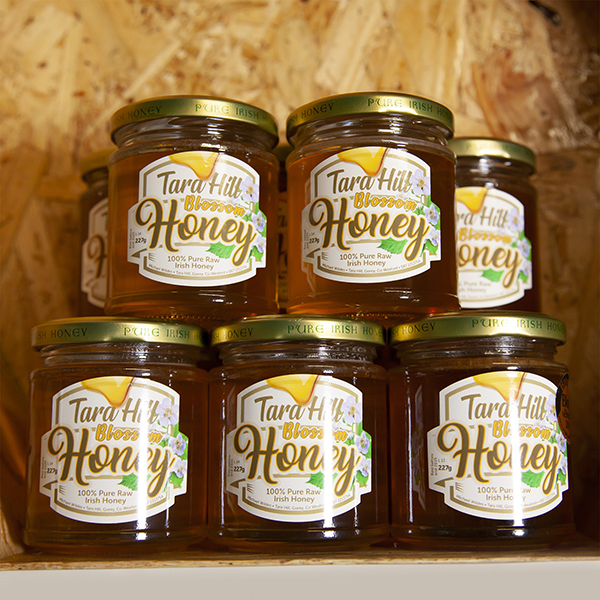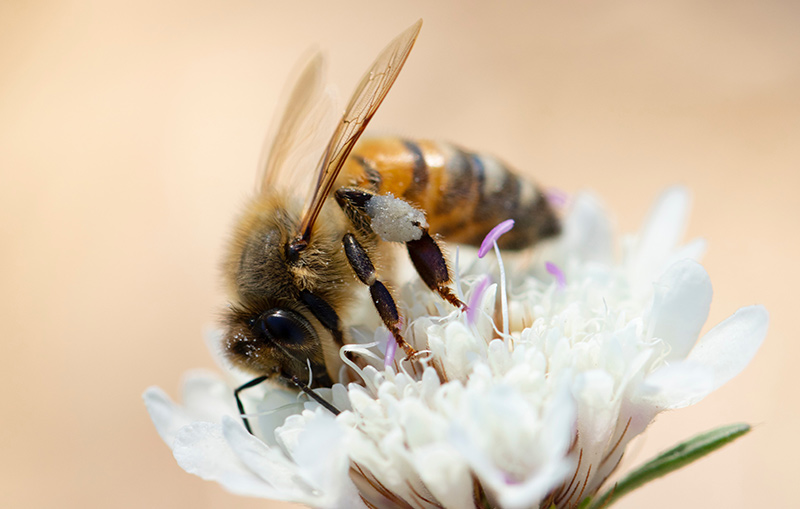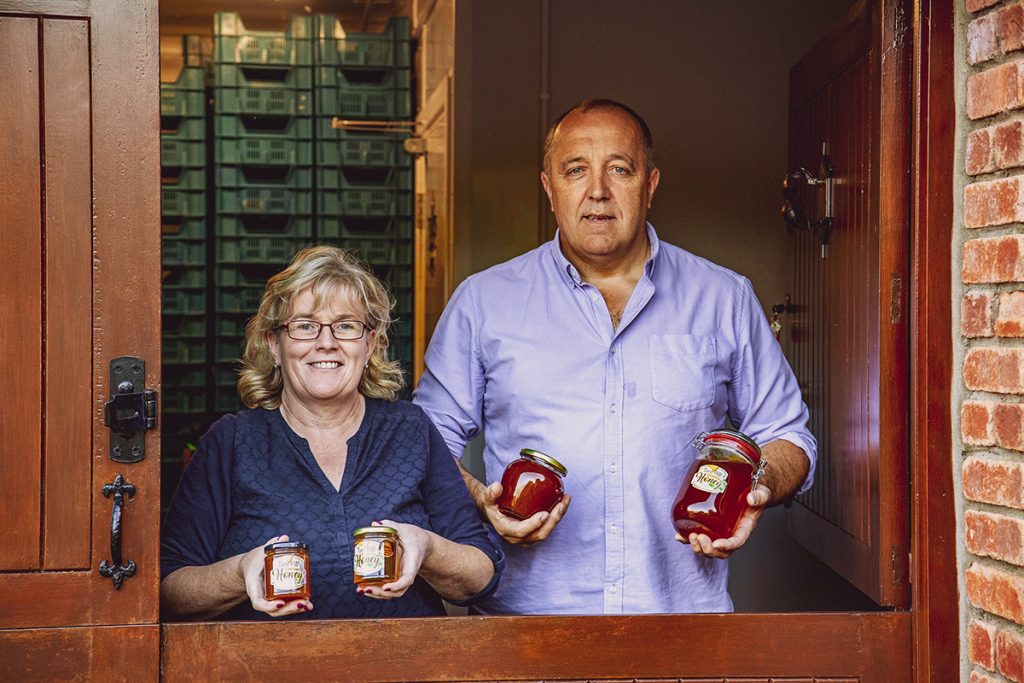
tara hill – Bees and Beekeeping
The amazing benefits of Tara Hill Raw Irish Honey
Honey is natures super-food. Known since prehistoric times as an energy giving life-force. Its healing properties range from the relief of sore throats to helping wound healing and its benefits are still being discovered. Mick and Anne have been nurturing bees for 25 years. Their expertise and dedication assists the many thousands of bees in each hive bring in nectar and pollen from wild flowers, blackberry balsam and heather to produce individually flavoured honeys, each with its own characteristic colour, perfume and taste.
Each year Mick brings his beehives to the mountains in August so that the bees can feast on hundreds of acres of purple heather. Irish Heather Honey has been proven to possess the same health giving properties as New Zealand’s Manuka Honey, and with Tara Hill Honey you are guaranteed Irish honey of the highest quality, without additives, without treatments and guaranteed from flower, to bee, to hive, to jar.

collecting pollen

Anne & Mick Wildes – Tara Hill Honey
Bees are essential to our world, pollinating crops, fruit and flowers. Without them, harvests would not be possible, flowers wouldn’t seed and our world would resemble a desert.”
“Our comb honey, in simplest terms, is the rawest form of honey available. We take the frames whose hexagons are filled only with honey, cut that comb honey into squares, and place it in a box for you to take home. No human hands have come into contact with your honey..”
The beekeeper plays a central role in preserving this activity, supporting, nurturing and providing shelter for the bees, keeping them alive when food is scarce, housing them when they swarm and ensuring a plentiful supply of flowers for them to make their honey and feed off the pollen. Bees are one of natures marvels. A hive can contain many thousands of worker bees, a small population of male drone bees and one queen bee, who can lay over 2,000 eggs a day. A microcosm of society, the worker bees begin their tasks shortly after hatching without lessors or learning, spending up to 3 weeks on hive duty, cleaning and tending to the larvae that have been laid by the queen. After this period working within the hive, they switch their focus to the outside world flying hundreds of miles to source and return with their precious cargo of nectar. A single bee will produce only 1/12 of a teaspoon of honey in its lifetime. Which is deposited in the hundreds of tiny cells that have been meticulously build in little hexagons, each with a slight upward tilt. It is in these cells that the bees concentrate the honey before capping it off. There it remains until the beekeeper harvests the crop of honey (carefully and respectfully leaving enough for the hard working bees) and with little interference bottles the golden liquid ready for you, the customer to enjoy
